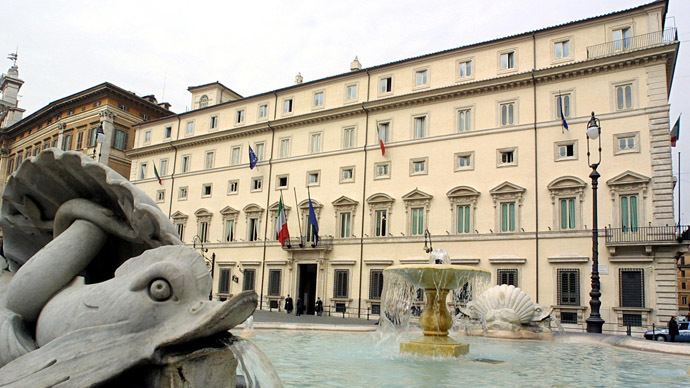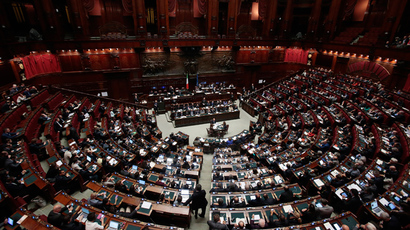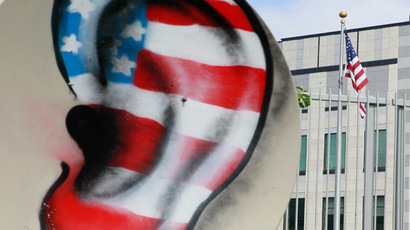NSA spied on Italian leaders ‘from US diplomatic missions in Rome, Milan’

Italian communications have been targeted through the US’s Special Collection Service sites in Rome and Milan, according to Italy’s l’Espresso. The same service allegedly tapped into German Chancellor Angela Merkel’s cellphone.
The new leak, revealed by Glenn Greenwald with l’Espresso,
alleges that the National Security Agency subjected Italy’s
leadership to surveillance, although not specifying which people
within the country’s “leadership” were monitored, via US
diplomatic missions in Rome and Milan. The spying went on from
1988 to at least 2010.
The NSA conducted snooping in Italy via its Special Collection
Service, which came under scrutiny after the snooping scandal
involving Chancellor Angela Merkel. The
report on Friday reveals the service kept whole two sites
running in Italy: one in Milan, the country’s main economic hub,
and one in Rome (staffed with agents). Of all European nations,
only Italy and Germany had two SCS sites working simultaneously,
according to the leak.
“The NSA partners with the CIA in the SCS construct in which
NSA employees under diplomatic covert conduct SIGINT
collection,” reads the telling line in the newly published
file. SIGNIT is the NSA’s Signal Intelligence service, which
intercepts communications between people.
SCS is one of the most sensitive units in US intelligence. It has
teams working in US embassies around the world, including in
Berlin, Athens, Mexico City, New Delhi and Kiev, according to a
recent Cryptome leak. In NSA
revelations on Germany it was alleged that the US embassy in
Berlin provided its roof for the service’s intercepting antennae.
According to the l’Espresso documents, the SCS “in 1988 had
88 sites, our peak.” Despite the number of sites being
reduced following the fall of the Berlin Wall and the official
end of the Cold War with the Soviet Union, by 2010 the SCS had up
to 80 sites, two of which were the Rome and Milan sites in Italy.
The document states that the SCS has always “opened or closed
sites based on productivity.”
The new report provided appears to directly contradict official
statements which have been dismissive of earlier spying
allegations. In November, Italian PM Enrico Letta stated that
“we are not aware that the security of the Italian government
and embassies has been compromised.”
“There is no evidence that the United States is spying on Italian
citizens,” Italy’s Parliamentary Committee for the
Intelligence and Security Services and for State Secret Control
said in a statement in October.
The committee said at the time that bilateral agreements on
cooperation in security precluded the possibility that either
side would spy on each other.
But in October, Greenwald reported that the NSA’s many spying
operations included those conducted “on European governments
and including the Italian government.”
A few days later, it was exposed how 46 million Italian phone
calls were monitored by the NSA, according to digital library
host Cryptome – an expose which shortly followed the publication
of the documents in L’Espresso which outlined how US intelligence
services had monitored Italian telecoms networks, targeting both
the government and companies in addition to suspected terrorists.














